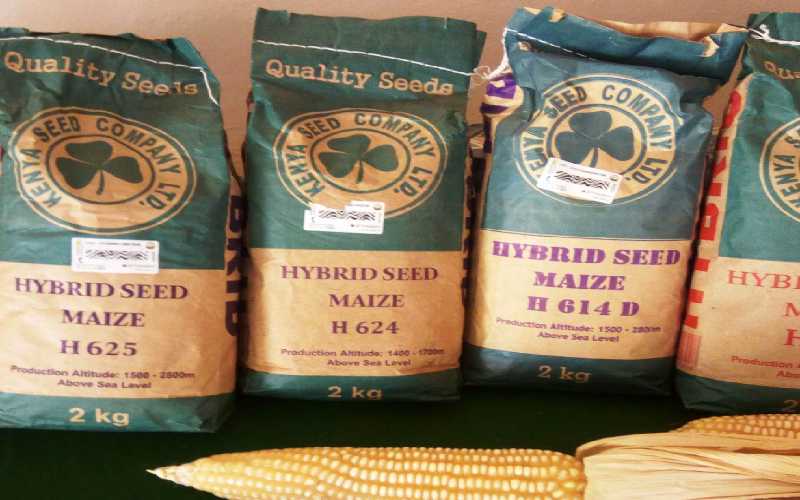
Kenyan farmers still prefer planting the 614 maize seed variety that was developed 31 years ago despite the availability of 250 hybrid varieties in the market thanks to its (H614 maize) good taste for ugali and roasting that makes consumers go after it further booting the farmers’ sales.
According to Azariah Soi, Kenya Seed Company managing director, the variety is still a preferred choice for many farmers who are targeting local consumers.
Although the variety has been improved to suit different climatic conditions in Kenya and is resilient, the maize seed is now very prone to counterfeits as ill-mannered traders are rushing to take advantage of the opportunity to sell poor and uncertified seeds to the growers.
“Unscrupulous traders take advantage of the high demand of the 614 maize seed and develop fake seeds to make money,” Said Soi during a past event at Tegemeo Institute of Agricultural Policy and Development.
He advised farmers to be very keen to make sure they buy quality, certified seeds during planting seasons.
RELATED ARTICLE: New drought tolerant and pests resistant maize variety gets Sh2.5bn funding
RELATED ARTICLE: Seed company launches fast maturing, high yielding maize variety
RELATED ARTICLE: New maize variety triples yields,withstands harsh weather
Last year, some farmers in Naymira County planted various maize seed varieties such as H6213 and H614 but lost nearly half of their crops due to maize lethal necrosis disease (MLND) according to Thomas Nyamongo, an agricultural extension officer in the area.
“From my own sampling in the region, I have seen farmers who have lost roughly three-quarters of their crops due to the disease and had to uproot all the their crops,” said Nyamongo
Certified H614 maize variety is tolerant to blight, tolerant to leaf and ear diseases, and tolerant to weevil attack and the seeds go for between Sh170 and Sh4,500 depending on the package quantity.
The variety is suitable for the intermediate altitude (1,500-2,000m above sea level) and it has a potential of producing 40 bags per acre under good agronomical practices.
Photo courtesy
















Comments powered by CComment